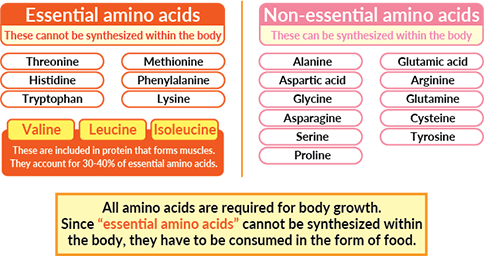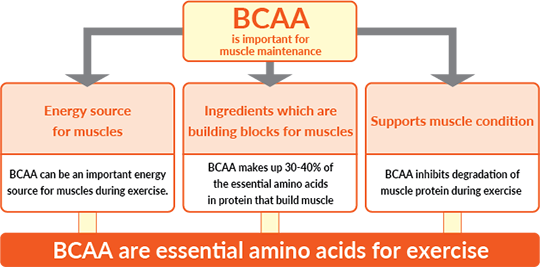The function of BCAAs (Branched Chain Amino Acids) during sports activities
The proteins that make up the body are created from 20 different amino acids

Proteins are indispensable components in the human body's construction. They are made of a combination of 20 different amino acids.
All 20 amino acids are needed to build the body.
Because essential amino acids cannot be synthesized within the body,
they must be acquired from food.
The proteins that compose the human body are made of 20 different amino acids (9 essential amino acids + 11 non-essential amino acids). The function and shape of each protein varies depending on the number, type, and combination order of its amino acids. All 20 amino acids are needed to build the body, but essential amino acids cannot be synthesized in the body and must be acquired from food. The essential amino acids that are converted to energy in the muscles are valine, leucine, and isoleucine, and the general name for these 3 is "BCAAs (Branched Chain Amino Acids)."
The 3 Functions of BCAAs
If you consume BCAAs before exercising and use them as a source of energy, they will help you maintain your performance. Their main functions are as follows.
- 1Compose 30-40% of the essential amino acids that make up muscles
- 2Prevent muscle proteins from breaking down
- 3Used as an efficient energy source during exercise
BCAA is a general name for valine, leucine, and isoleucine.
BCAAs are amino acids that suppress protein breakdown and are used as an efficient energy source during exercise.

Research report on BCAA intake during exercise
When you continuously drink a beverage containing BCAAs, the concentration of BCAAs in your bloodstream increases before you exercise. Numerous studies report that this brings many benefits, such as the efficient use of BCAAs as an energy source during exercise and suppressed lactic acid production for improved endurance.









